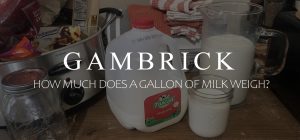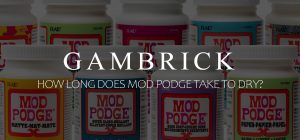Body Armor vs. Gatorade
Gatorade and Body Armor are two of the most popular sports drinks on the market. When you work out, your body loses electrolytes, salt, minerals, vitamins, potassium, and water. BodyArmor and Gatorade prevent dehydration by rehydrating the body and replenishing what’s lost to sweat. Both sports drinks perform the same basic function but do it in slightly different ways. Gatorade contains water, sugar, dextrose, citric acid, natural flavor, salt, sodium citrate, and mono-potassium phosphate, among other ingredients. BodyArmor claims to be a healthier alternative to Gatorade. It contains a broader range of nutrients, including coconut water for potassium and hydration, lots of antioxidants (vitamins A, C, and E), and B vitamins for energy metabolism, filtered water, pure cane sugar, citric acid, dipotassium phosphate (electrolyte), and a range of vitamins and natural flavors. But that doesn’t necessarily make it a better sports drink.
Many athletes prefer a sports drink over water because they replenish more of what’s lost to sweat and rehydrate the body faster. Gatorade and Body Armor both contain sugar to provide quick energy. Body Armor uses pure cane sugar, while Gatorade has a mixture of high-fructose corn syrup, dextrose, and sucrose. A typical 12 oz serving of Gatorade and Body Armor both contain 21 grams of sugar.
Both drinks replenish vital electrolytes and nutrients lost during exercise. Gatorade’s electrolyte content primarily comes from sodium and potassium, while Body Armor’s comes from a mixture of coconut water, potassium, and added electrolytes. But because of the coconut water and additional ingredients, Body Armor has a thicker consistency than Gatorade.
Gatorade and Body Armor serve the same purpose of hydration and energy replenishment, but they do it in different ways. Gatorade is a time-tested classic, while Body Armor brings more nutritional complexity and natural ingredients to the table.
Body Armor Vs. Gatorade
BodyArmor and Gatorade are leading sports drinks designed to stave off dehydration, replenish what’s lost to sweat, and provide quick energy. They achieve this by replacing electrolytes, potassium, water, salt, and other minerals lost during intense physical activities. Both drinks offer a substantial alternative to plain water, particularly in situations requiring sustained energy and endurance.
- One of the main reasons for the popularity of sports drinks is their flavor. Because both drinks taste good, many people will drink more of them vs. plain water, which helps fight dehydration.
- Another reason why many athletes prefer sports drinks over plain water is the energy benefits. Gatorade and Body Armor provide an energy boost necessary to combat the fatigue of strenuous activities by including easily digestible carbohydrates, like sugars, which the body can rapidly convert into energy. This helps athletes sustain their performance levels for longer periods.
- Sports drinks aren’t just about hydration but also energy replenishment.
- Both drinks replenish salt, minerals, vitamins, and potassium lost to sweat.
The appeal of Body Armor and Gatorade extends beyond mere hydration. Their diverse flavors and the promise of sustained energy make sports drinks a popular choice for anyone seeking to maintain optimal physical performance while also enjoying a flavorful beverage.
I’ve been drinking Gatorade at work, and when I workout for over 3 decades, and just started drinking Body Armor. So far, I like Body Armor better when I’m on the construction site because it’s less strenuous than a workout. When I’m running or lifting weights, I prefer Gatorade because it’s much thinner, and I don’t like something heavy when I’m working out.
BodyArmor vs Gatorade: Comparison Chart
Here’s a summarized view of what’s in BodyArmor vs. Gatorade.:
| Body Armor | Gatorade | |
| Flavors | Over 25 Flavors | Over 12 Flavors |
| Color | Food concentrate for color, all-natural coloring | Artificial Dyes |
| Design | A More Natural Sports Drink | A Pure Sports Drink |
| Texture/Consistency | Thick Consistency Like Juice | Thin Like Water |
| Base | Coconut Water | Plain Water |
| Pros | A more natural sports drink than Gatorade, seen as an alternative to Gatorade which is the standard | Has more flavors, cheaper but very effective, most professional sports teams and athletes drink it |
| Owned By |
The Coca-Cola Company | PepsiCo. |
| Nutritional Per 12 oz. | ||
| Calories | 90 Calories | 95 Calories |
| Carbs | 21 grams from sugar | 21 grams from sugar |
| Sodium | 30 mg. sodium | 142 mg. sodium |
| Potassium | 530 mg. Potassium | 55 mg. Potassium |
Body Armor
Body Armor is a fairly new sports drink compared to Gatorade and was first sold in 2011. It’s designed to aid hydration and provide energy during physical activity by replenishing electrolytes and nutrients lost through sweat. Body Armor is marketed as a healthier alternative to traditional sports drinks like Gatorade thanks to its focus on natural ingredients. It contains filtered water, pure cane sugar, coconut water concentrate, and various vitamins and minerals. Notably, it’s rich in electrolytes, including potassium, magnesium, and calcium, that are essential for maintaining fluid balance in the body.
- Body Armor contains antioxidants, including vitamins A, C, and E, which are important for combating oxidative stress that can occur during intense workouts. It also includes B vitamins that play a critical role in energy metabolism, helping to convert food into energy more efficiently.
- A typical 12-ounce serving of Body Armor contains approximately 21 grams of sugar sourced from pure cane sugar. This sugar content is comparable to Gatorade and provides a quick energy boost.
- As a sports drink, Body Armor aims to provide hydration, replenish electrolytes, and deliver quick energy. The presence of both carbohydrates (sugar) and electrolytes in the drink is consistent with the American College of Sports Medicine’s recommendations for exercise recovery.
- The coconut water in Body Armor provides a significant amount of potassium, an electrolyte often depleted during sweat-intensive activities. This may offer superior hydration benefits compared to Gatorade.
Body Armor provides a multi-faceted approach to hydration and energy replenishment. With its natural ingredients, comprehensive electrolyte profile, and added vitamins, it serves as a viable choice for athletes and active individuals. However, the high sugar content may be a drawback for those watching their sugar intake or participating in less intense activities.
Gatorade
Gatorade is a time-tested sports drink that’s been around since 1965. It’s recognized for its hydration and energy-replenishing properties and is designed to help athletes maintain optimal performance by addressing the body’s needs during rigorous physical activity. If you look at the sideline of any major sport in the world, the athletes are generally drinking Gatorade.
Gatorade’s primary components are water, sugars (sucrose and dextrose), and electrolytes (sodium and potassium). Some versions of the drink also contain high fructose corn syrup. These ingredients are carefully selected to replace nutrients lost in sweat during strenuous exercise and to provide energy quickly.
- The electrolytes in Gatorade help maintain the body’s fluid balance, which is critical for muscle function and hydration.
- The sugars in the drink serve as a quick source of energy for the body, especially valuable during prolonged physical activities when the body’s energy stores might otherwise become depleted. Gatorade contains 21 grams per 12 oz. serving.
- Gatorade’s fundamental purpose as a sports drink is to hydrate and replenish lost electrolytes during physical exertion. The combination of water and electrolytes promotes hydration and helps prevent muscle cramping, a common issue for athletes during intense workouts or games.
- Gatorade’s readily available carbohydrates (sugars) provide quick energy, which is essential during prolonged physical activities to maintain performance and prevent fatigue.
- Gatorade is available in a wide variety of flavors.
Athletes favor Gatorade for several reasons. During rigorous exercise, the body loses water and electrolytes through sweat. Drinking Gatorade helps replace these essential elements, thus preventing dehydration and promoting better physical performance. Moreover, the carbohydrates in Gatorade offer a readily available source of energy, enabling athletes to sustain their performance levels, particularly during endurance events.
Nutrients in Body Armor vs. Gatorade
Sports drinks like Gatorade and Body Armor generally contain sugar to replenish energy quickly. Both contain about 21 grams per 12 oz. serving, which is about 40% of your daily recommended intake. The main difference is the type of sugar contained in the drinks. Body Armor uses pure cane sugar, while Gatorade uses a mixture of fructose, sucrose, and dextrose. Many people consider pure cane sugar to be the healthiest type of sugar.
Body Armor contains more natural ingredients compared to Gatorade. It contains coconut water as a base, which contains more electrolytes and potassium, has all the natural flavors, and is free of preservatives, gluten, and caffeine. Whereas Gatorade uses the following:
- Artificial dyes
- Colors
- Preservatives
- GMO ingredients.
This makes Body Armor a healthier option than Gatorade. However, it doesn’t necessarily make it a better sports drink. All those ingredients make Body Armor a thick drink like juice, while Gatorade is thin as water. This is a big benefit for Gatorade because you can drink more during an intense workout without upsetting your stomach or feeling full.
Gatorade contains 160 mg. of sodium compared to 30mg. found in Body Armor. This can be a huge benefit if your body needs salt after or during a workout.
Overall I agree Body Armor is the healthier drink, but Gatorade isn’t designed to be a healthy drink. I prefer Body Armor about 20-30 minutes before or after a workout. But I drink Gatorade during an intense workout or long run because, for me, it’s the better sports drink.
Body Armor vs. Gatorade: Taste & Texture
One of the primary differences between Body Armor and Gatorade is their ingredients. Body Armor promotes itself as a more natural sports drink alternative to Gatorade. It’s free of artificial preservatives and contains natural flavors. Notably, Body Armor uses pure cane sugar as its primary sweetener, which some consumers prefer over high fructose corn syrup, dextrose, sucrose, or other artificial sweeteners used in Gatorade.
Body Armor also contains coconut water as a base, which makes it thicker than Gatorade.
- While very effective at rehydrating and replenishing energy, Gatorade uses artificial coloring and flavors in some of its products and doesn’t use pure cane sugar. This doesn’t diminish its effectiveness as a sports drink but is a concern for some consumers.
- Gatorade has a much larger selection of flavors, offering over 25. This gives athletes the flexibility to choose a flavor they genuinely like to drink.
- Body Armor offers fewer flavors, including Mixed Berry, Strawberry Banana, and Tropical Punch, but they’re all very popular.
- Body Armor has a thicker consistency compared to Gatorade. It’s thick like juice, while Gatorade has the consistency of water. The extra thickness is nice when I want to stave off hunger, but I prefer a thinner drink during a hard workout or a long run.
The consistency of the two drinks is a big factor for me. When I’m working out hard or running, the last thing I want is a thick juice like Body Armor. Gatorade is great because it’s thin like water, refreshing, and easy to drink. But about 20-30 minutes before or after a workout, I like a thicker drink and prefer Body Armor.
If you want natural ingredients and a thicker texture, Body Armor may be the best choice. However, if you want fewer calories, a thinner drink, and a wider variety of flavors, choose Gatorade.
Price Difference Between Body Armor and Gatorade
Body Armor and Gatorade are about the same price, but Gatorade is slightly cheaper most of the time. I’ve seen Body Armor sell for less than Gatorade when its on sale so that’s when I usually buy it. I compared the two best sellers on Amazon, Body Armor was $13.69 for a pack of 12 / 16 oz. bottles, which is .07 cents per oz. Gatorade was $14.49 for a pack of 12 / 20 oz. bottles which is .06 cents per oz.
Where and when you buy, the size of the bottle and the type of drink effects the price a lot. Both Body Armor and Gatorade make a variety of formulas, flavors and sizes which all have different prices.
Here’s a table showing the price difference between the two sports drinks.
| Body Armor | Gatorade | |
| Amazon Best Sellers |
$13.96 (pack of 12 / 16 oz.) Tropical Punch | $14.49 (pack of 12 / 20 oz.) Classic Flavors |
Body Armor vs. Gatorade: Sugar, Ingredients, & Nutritional Content
Sports drinks replenish lost electrolytes and provide a quick energy boost, but they do it by containing lots of sugar. Both Body Armor and Gatorade contain 21 grams of sugar per 12 oz. serving. However, the type of sugar they use is different. Body armor contains pure cane sugar, which some people consider a healthier option compared to the sucrose, dextrose, and high fructose found in some Gatorade products.
- When comparing the ingredient lists of Body Armor and Gatorade, Body Armor is the more natural choice. It incorporates coconut water in its base, renowned for its hydrating qualities and naturally high potassium content, and claims to use all-natural flavors.
- Body Armor claims that it’s free of preservatives, gluten, and caffeine, which is appealing to a health-conscious consumer.
- Gatorade has been known to use artificial dyes, colors, and preservatives in some of its product lines. It’s very effective as a sports drink, but doesn’t claim to use all-natural ingredients like Body Armor.
- Both Gatorade and Body Armor have similar caloric content, hovering around 80 calories per 12-ounce serving. However, the distribution of nutrients differs, with Body Armor providing a broader range of vitamins.
Analyzing their electrolyte and caloric content, Gatorade contains 250mg of sodium and 65mg of potassium per serving. On the other hand, Body Armor has 15mg of sodium and 300mg of potassium, partly due to its coconut water base. Potassium is an essential electrolyte that aids in muscle function and fluid balance. This may make Body Armor the better choice if your body needs more potassium.
Body Armor may be perceived as a healthier option compared to Gatorade due to its natural ingredients and higher potassium levels. However, that doesn’t mean it’s more effective as a sports drink.
Body Armor vs. Gatorade: Hydration & Energy
The primary purpose of sports drinks like Body Armor and Gatorade is to hydrate the body and restore energy lost during intense physical activities. They do it by providing electrolytes, salts, minerals, vitamins, potassium, water, and quick-digesting carbohydrates (sugars) for energy. This helps minimize post-workout discomforts such as muscle cramps and exhaustion. From this standpoint, both drinks are very effective.
When it comes to hydration, the drinks work on a similar principle: they use a balance of electrolytes, including sodium and potassium, to aid in fluid retention and distribution throughout the body. This electrolyte replenishment helps mitigate dehydration, particularly during extended workouts or high-heat conditions where sweat losses are significant.
The carbohydrates in these drinks, sourced mainly from sugars, provide the body with an immediate energy source, helping to speed up recovery and restore performance capacity after a workout.
While both sports drinks work extremely well, they have completely different consistency and texture.
- Body Armor has a thicker texture which is more satiating and helps fight hunger. But it could be a little thick during intense workouts.
- Gatorade is much thinner with a consistency like water. It doesn’t fight hunger, but it’s easier to drink during an intense workout.
Body Armor and Gatorade are very effective drinks for hydration and replenishment during and after a workout. Regardless of which you choose, both are designed to help you recover and return to peak performance after exertion.
Personally, I find Body Armor to be a little thick for a workout drink. I prefer drinking it pre-workout, about 20-30 minutes before going to the gym, or post-workout, about 20-30 minutes after working out.
If I want a drink during the workout, I prefer Gatorade because it’s as thin as water, very easy to drink, and doesn’t upset my stomach.
Body Armor vs. Gatorade: Which is Better When Sick?
When you’re ill, staying properly hydrated is crucial, especially if symptoms include fever, sweating, vomiting, or diarrhea, which can lead to fluid and electrolyte loss. Sports drinks like Body Armor and Gatorade can help replace these losses due to their electrolyte content. Both drinks contain about 21 grams of sugar per 12 oz., which provides fast energy and helps fight nausea.
Body Armor might be the better choice due to its higher potassium content, which is about 300mg per serving compared to Gatorade’s 65mg per serving. Potassium is an essential electrolyte that aids in fluid balance and nerve and muscle cell functioning, making replenishment important when sick.
Additionally, Body Armor contains a broader range of vitamins compared to Gatorade, including Vitamin A, C, E, and a variety of B vitamins, which can support the immune system and overall recovery.
But Body Armor is thick like juice and could upset your stomach if you drink too much.
On the other hand, Gatorade has a lighter consistency which is easier on the stomach, particularly if nausea or vomiting is a symptom.
Both Body Armor and Gatorade can aid in hydration when you’re sick. However, Body Armor provides additional benefits due to its higher potassium and vitamin content, but Gatorade could be better tolerated due to its lighter consistency.
Your choice should depend on the specific symptoms you’re experiencing and, most importantly, guidance from a doctor.
Body Armor vs. Gatorade: A Comparison of Nutritional Facts
Sports drinks like Body Armor and Gatorade are convenient for replenishing electrolytes and providing energy during physical activities. However, their nutritional profiles differ in certain aspects.
Here’s a breakdown of their nutritional facts based on a standard 12-ounce serving:
Body Armor:
- Calories: Around 90-120 calories
- Carbohydrates: 21-30 grams
- Sugars: 18-26 grams
- Sodium: 15-20 milligrams
- Potassium: Around 300 milligrams
- Protein: 0 grams
- Other nutrients: Contains significant amounts of Vitamins A, C, E, and various B vitamins.
Gatorade:
- Calories: Around 80 calories
- Carbohydrates: 21 grams
- Sugars: 21 grams
- Sodium: Around 160 milligrams
- Potassium: Around 45 milligrams
- Protein: 0 grams
- Other nutrients: Limited amounts of various vitamins, depending on the variant.
Both drinks contain a balance of electrolytes and carbohydrates (mainly sugars), crucial for maintaining hydration and supplying immediate energy during or after strenuous exercise. However, Body Armor stands out with its higher potassium content and more comprehensive vitamin profile.
While Gatorade has lower calories and roughly the same sugars, it’s also higher in sodium, which can be beneficial for intense physical activities where significant sodium is lost through sweating.
Gatorade vs. Body Armor: Why Gatorade is Best
Gatorade and Body Armor are both leading sports drinks developed to rehydrate and replenish energy during and after physical activity. While both have their strengths, several key factors make Gatorade the better choice. Firstly, Gatorade’s higher sodium content is a big advantage. Sodium is an essential electrolyte lost through sweat during intense workouts or activities. Its fast replenishment is crucial in maintaining hydration and muscle function. With around 160 milligrams of sodium per 12-ounce serving, Gatorade provides significantly more than Body Armor’s 15-20 milligrams.
- Another big advantage of Gatorade is its light consistency. It’s easy to drink and less filling than Body Armor, which can help during a hard workout.
- Gatorade also takes the lead in terms of flavor diversity, offering over 25 distinct flavors.
- One of Gatorade’s big advantages is that it generally contains fewer sugars and calories compared to Body Armor.
- The brand has been around for over 50 years, working closely with athletes and sports professionals to make the best sports drink possible.
- If you look at the sideline of just about every professional sport, the athletes will be drinking Gatorade, not Body Armor.
Gatorade’s higher sodium content, lighter consistency, wide flavor range, lower sugar and calorie content, and strong reputation make it the best choice in the sports drink market.
Body Armor vs. Gatorade: Why Body Armor is Best
Body Armor and Gatorade are both popular sports drinks with lots in common, but a few factors make Body Armor the better choice. Firstly, Body Armor has more potassium compared to Gatorade. With approximately 300 milligrams per serving, it offers a significant amount of this crucial electrolyte which aids in muscle function and fluid balance. This is substantially more than the 45 milligrams found in a comparable serving of Gatorade, making Body Armor a better choice if you need more potassium replenishment.
- Body Armor also contains a variety of vitamins, including Vitamins A, C, E, and several B vitamins. These nutrients can support the immune system and overall body functions, a feature Gatorade lacks with its limited vitamin profile.
- One of Body Armor’s strongest points is its commitment to using more natural ingredients. It uses cane sugar and contains no artificial preservatives or coloring, whereas Gatorade may contain artificial flavors and preservatives.
- Body Armor’s thicker consistency is appealing if you want a more substantial and satiating drink, which can help curb your appetite for a while.
- Body Armor also offers a lower sodium content, which could be a plus for individuals who need to monitor their sodium intake. While sodium is important for athletes losing this electrolyte through sweat, for casual exercisers or those with certain health considerations, the lower sodium content of Body Armor could be beneficial.
- Body Armor comes in a variety of fresh and fruity flavors that are stronger and more distinct than the taste of Gatorade.
Body Armor’s higher potassium content, added vitamins, use of natural ingredients, lower sodium content, and carefully crafted flavors give it a notable advantage over Gatorade. This makes Body Armor a better choice if you want a more natural, nutritionally-balanced sports drink.
Body Armor vs. Gatorade: Which is Better for a Hangover
Hangovers are the horrible aftermath of drinking too much alcohol, which may include symptoms like dehydration, fatigue, and headaches. Drinking sports drinks can help because they contain things like sugar, potassium, salt, minerals, vitamins, water, and electrolytes.
Body Armor might have an edge for treating some hangovers because it has more potassium, about 300mg per serving, compared to Gatorade’s 45mg per serving.
- Potassium is an essential electrolyte that helps regulate fluid balance, nerve signals, and muscle contractions.
- Sports drinks can replenish the body’s potassium stores, which can get depleted by drinking too much alcohol.
Body Armor also has the advantage of containing a broader range of vitamins, including vitamins A, C, E, and a variety of B vitamins. These can support the body’s recovery processes, potentially aiding in hangover relief.
The drink’s thicker consistency due to the addition of coconut water might also help create a feeling of fullness, potentially curbing any residual nausea.
On the other hand, Gatorade’s higher sodium content and lighter consistency could make it easier to drink in large quantities, which is essential when trying to rehydrate after a night of drinking.
While both drinks can help with a hangover, Body Armor has an advantage if your body needs more potassium and vitamins. However, Gatorade could have an edge if you have nausea because it’s thinner and easier to drink.
Body Armor vs. Gatorade: A Comparison of Sugar Content
Body Armor and Gatorade both provide hydration and replenish electrolytes during and after physical activity. However, they differ in the drink’s amount and type of sugar.
- Body Armor contains approximately 18-26 grams of sugar per 12-ounce serving. The exact amount can vary slightly depending on the specific flavor. Body Armor uses cane sugar, which is touted as a more natural sweetener.
- Gatorade contains about 21 grams of sugar per 12-ounce serving. The sugar in Gatorade is derived from a mix of sucrose and dextrose.
While the sugar content of both sports drinks is relatively close overall, some Body Armor flavors can contain more sugar than Gatorade.
Although both sports drinks can provide essential hydration and electrolytes during and after physical activity, their high sugar content means they should be consumed in moderation.
Summary: Body Armor vs. Gatorade
Gatorade and Body Armor are two of the most popular sports drinks on the market. When you work out, your body loses electrolytes, salt, minerals, vitamins, potassium, and water. Both drinks prevent dehydration by rehydrating the body and replenishing what’s lost to sweat. Both sports drinks perform the same basic function but do it in slightly different ways. Gatorade contains water, sugar, dextrose, citric acid, natural flavor, salt, sodium citrate, and mono-potassium phosphate, among other ingredients. Body Armor claims to be a healthier alternative to Gatorade. It contains a broader range of nutrients, including coconut water for potassium and hydration, lots of antioxidants (vitamins A, C, and E), and B vitamins for energy metabolism, filtered water, pure cane sugar, citric acid, dipotassium phosphate (electrolyte), and a range of vitamins and natural flavors. But that doesn’t necessarily make it a better sports drink.
- Many athletes prefer a sports drink over water because they replenish more of what’s lost to sweat and rehydrate the body faster. Gatorade and Body Armor both contain sugar to provide quick energy. Body Armor uses pure cane sugar, while Gatorade has a mixture of high-fructose corn syrup, dextrose, and sucrose. A typical 12 oz serving of Gatorade and Body Armor both contain 21 grams of sugar.
- Both drinks replenish vital electrolytes and nutrients lost during exercise. Gatorade’s electrolyte content primarily comes from sodium and potassium, while Body Armor’s comes from a mixture of coconut water, potassium, and added electrolytes. But because of the coconut water and additional ingredients, Body Armor has a thicker consistency than Gatorade.
Gatorade and Body Armor serve the same purpose of hydration and energy replenishment, but they do it in different ways.
If you have any questions or comments about Body Armor vs. Gatorade, email any time.
























